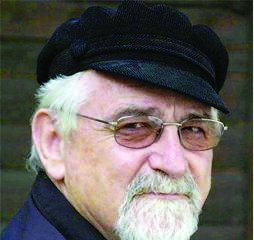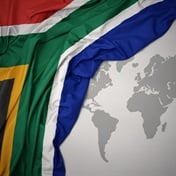
As the world continues to stagger through ongoing social and economic instability, crumbs of hope are still being tossed to increasingly restive and increasingly unemployed working people.
The latest large crumb concerning Africa comes in the form of the loudly trumpeted free trade zone.
Most of the continent’s 55 member states, which share a population of 1.22 billion, have signed on to what the African Union hopes will become a market worth R37.5 trillion.
These are massive figures that stir memories of many Pan-African dreams of yesteryear.
But those dreams, as with others around the world that resulted in the arrival of new nation states, were part of the great post-World War 2 insistence on democracy and freedom.
The demand was for an end to wars, exploitation and oppression; for a fair and just world.
It was a time, as one writer noted, when the spectre of a world that could be free loomed large.
It never happened. New countries emerged, each with their own elites. The right to vote was won, but the fundamental inequalities and injustices persisted.
Then, in the decades following that last global conflict, the clawback began in the name of global free trade.
Privatised state entities, the free movement of goods, capital, profits, dividends and investments were to be the answer to a better life for all. But missing from this claim was one word – fair.
While working people were supposed to gain from the trickled-down wealth of the rich, their freedom of movement was curtailed.
Of course, a borderless, united Africa would be a great advance, but only if it was based on fairness, on the democratic control of matters that affect citizens, on equal pay and conditions, and on the right to move.
With a putative African free trade zone on the cards, we are often encouraged to look to the EU as an example. We should look to the EU, but only to draw the right conclusions.
The major economies of the EU owe much of their wealth to the exploitation of regions such as Africa. For centuries a free flow of resources and capital has gone north to Europe.
This exploitation continues and is a significant factor in the devastation that is causing northward migration by desperate Africans. But while capital may move where it will, working people may not. Thousands have already died in the waters of the Mediterranean Sea.
The economic crisis also affects the countries of the EU, where unemployment and homelessness is growing. So too are calls to racially infused patriotism and nationalism as Britain tries to exit the EU and others rally to the union.
It is a classic case of “a hostile band of brothers” battling with one another, sometimes viciously and destructively, but always in the interest of maintaining the economic system.
Crucial to this is the need to try to deflect EU workers from their common interests with workers everywhere else.
However, there are already signs that working people are starting to see through the myth that the present system can be reformed. It has been a hard lesson.
Students and workers who staged Egypt’s rebellion of the Arab Spring, for example, sought reform by removing Hosni Mubarak and ended up with a worse tyrant in Abdel Fattah el-Sisi.
Today, the protesting masses of Sudan have ignored the blandishments of the military. They want the majority to have direct, democratic control of matters that affect them.
This struggle may only partially succeed or may be drowned in blood, but it has set an example.




 Publications
Publications
 Partners
Partners








